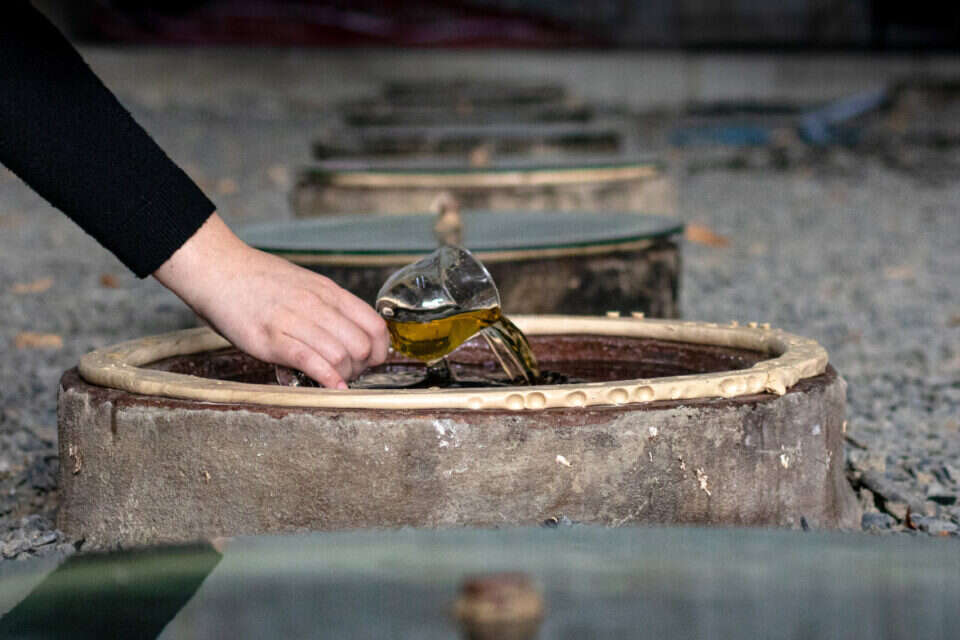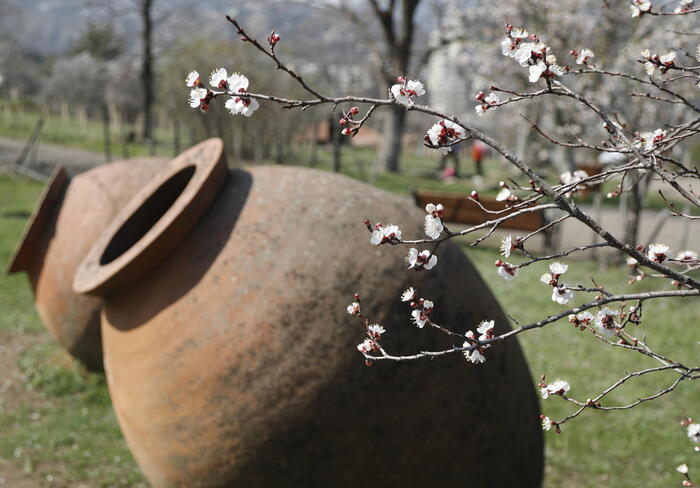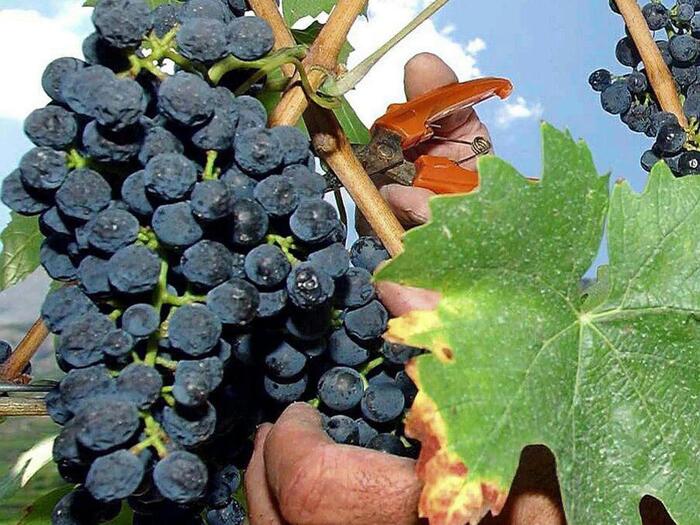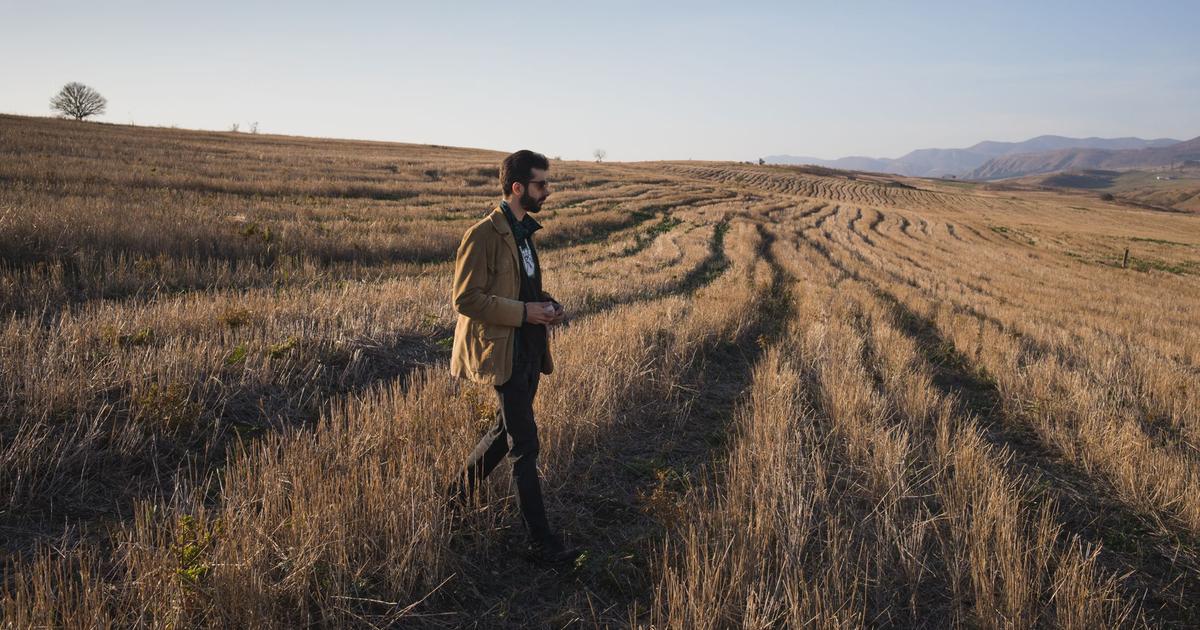After being marked in the last decade as one of the most popular tourist destinations among Israelis, Georgia also joins the map of wine-producing countries whose grape nectar has captured our hearts - or at least our palates.
The truth is Shane and Georgia have been going hand in hand for many years.
If you ask the Georgians, they will even tell you that their country is the homeland of wine and will also try to present archaeological findings to support this.
Not sure that they are right, but what is certain - the culture of wine consumption there is deep, and the quantities of wine that are sipped on every occasion there are impressive.
Georgian wine, it must be said, is different from all the wines we know.
The names of the wines are unique (Havanchakara, Tsinandali, Mokozani, etc.), the local grape varieties are numerous and unknown (Safravi, Rexatli, and Tswana are just a few of the prominent varieties in the country), and most of it is still produced using the traditional methods of using terrible clay amphoras (cabarri), which are sometimes even buried Under the ground to stabilize the temperature, which gives the wine different and completely different flavors from the modern wines we've all come to know.
Winemaking in Georgia, photo: RGW Winery
During the Soviet rule, these wines were popular throughout the USSR, perhaps because the ruler of the power, Joseph Stalin, a Georgian by origin, was very fond of these wines. Today's legend says that the current president of Russia, Vladimir Putin, also adopted the preference for these wines.
Dr. Shivi Drori, who leads the study of the wine vine in Israel at Ariel University, recently visited the country and was impressed by its production traditions: "They use 2,500-liter clay vessels for wine fermentation, which are buried under the ground to stabilize the temperature.
They clean the containers using a twig broom like in the old days, and a lot of washing with water.
Not sure it's sterile, but it's the method, and it pretty much works for them."
According to him, the process of soaking the must with the grape skins is very long, ranging from four months to six months, depending on the variety.
The slow ripening of the grapes there enables the process, since the vines at this stage are no longer green.
"In the modern world, such a wine is called 'orange wine,' but they call it 'amber wine,'" he explains.
"I've tasted phenomenal wines made with this method there, along with terrible wines - it really depends on the winemaker and the winery. For sure, they know their varieties well, know how to handle and control each one of them, and in recent years quite a few local winemakers who studied abroad have returned to Georgia and are Have a high professional level.
They have a wine production tradition of thousands of years."
Wine straight from the yard
If you visit home improvement and maintenance stores, you will find a variety of means and equipment for making wine at home: fermentation tanks of any size you choose (will 5,000 liters be enough for you?), crushers, pottery, peristaltic pumps and what not.
Making wine in Georgia is an equal hobby for everyone, and everyone who has a vine or two in their yard already produces wine from them, and not necessarily at the expense of purchasing wine made in professional wineries.
A significant part of the Georgian wines are sweet or semi-sweet, light and very satisfying, so that you can sip them again and again without getting drunk.
An ancient practice there is to pour the wine into a ram's horn for the one sitting at the head of the table, such that there is no basis for discounting, which obliges him to finish its contents at once.
Wines of the Georgian RGW Winery, photo: RGW Winery
David Golan grew up in Georgia in the town of Vani, near Kutaisi, and immigrated to Israel as a youth.
He returned there as a businessman, and specialized in agricultural entrepreneurship and the connection of Israeli technology to Georgia's natural resources, among other things through the Israel National Aid Agency.
Last year, Golan began importing wine from the Royal Georgian Winery (RGW), a large winery located in the Kakheti district, the wine capital of the country.
The owner of the winery is Dr. Rabaz Karalshvili, a doctor who left medical practice and returned to his family roots in wine production. The success motivated him to build a large and modern winery that produces about 3 million bottles a year, where he combines traditional production methods with modern technology, and now for the first time also produces wines Kosher. We drank some courage juice, and volunteered to taste them for you.
White Tsinandali, 2020
A dry white wine made of 85% Rexital grapes and 15% Mzvna.
It has a unique and pleasant nose, floral, tropical fruit (pineapple) and some citrus.
In the mouth flavors of peach, apricot and light honey are felt.
Its texture is moderately oily, the acidity is pleasant and the finish is light with good bitterness.
Price: 80 shekels
Rosa 2020
A semi-dry blend of Recitali grapes (60%) and Safravi (40%), with a bright pink-orange hue.
The nose is quite closed and includes some clove aroma.
On the palate it is sweet and graceful, with flavors of pomegranate and cherry, but ends quite quickly.
This is an everyday rosé and not pretentious.
Price: 80 shekels
Safravi 2020
A dry wine made from one of the most famous grape varieties in Georgia.
Its color is young purple, bright and beautiful.
The nose is floral, it has a fresh red and black fruit aroma (black cherry and blueberry) in a young and light body.
Chill it slightly, give it some time in the glass to open up, and it will be enjoyable on the balcony or even by the pool.
Price: 80 shekels
Alazani Valley, 2020
This is a wine made in a traditional Georgian style.
Although it is defined as semi-sweet, its sweetness is subtle and not overpowering.
It is made of 100% Sprawi grapes, plums, berries and winter spices.
The body is light and fruity.
Its alcohol level is low (11.5%) and allows you to sip more than the usual amount.
Price: 80 shekels
were we wrong
We will fix it!
If you found an error in the article, we would appreciate it if you shared it with us






/cloudfront-eu-central-1.images.arcpublishing.com/prisa/ARR2O7RSB5GA3PHABH4GHEX5FY.jpg)








